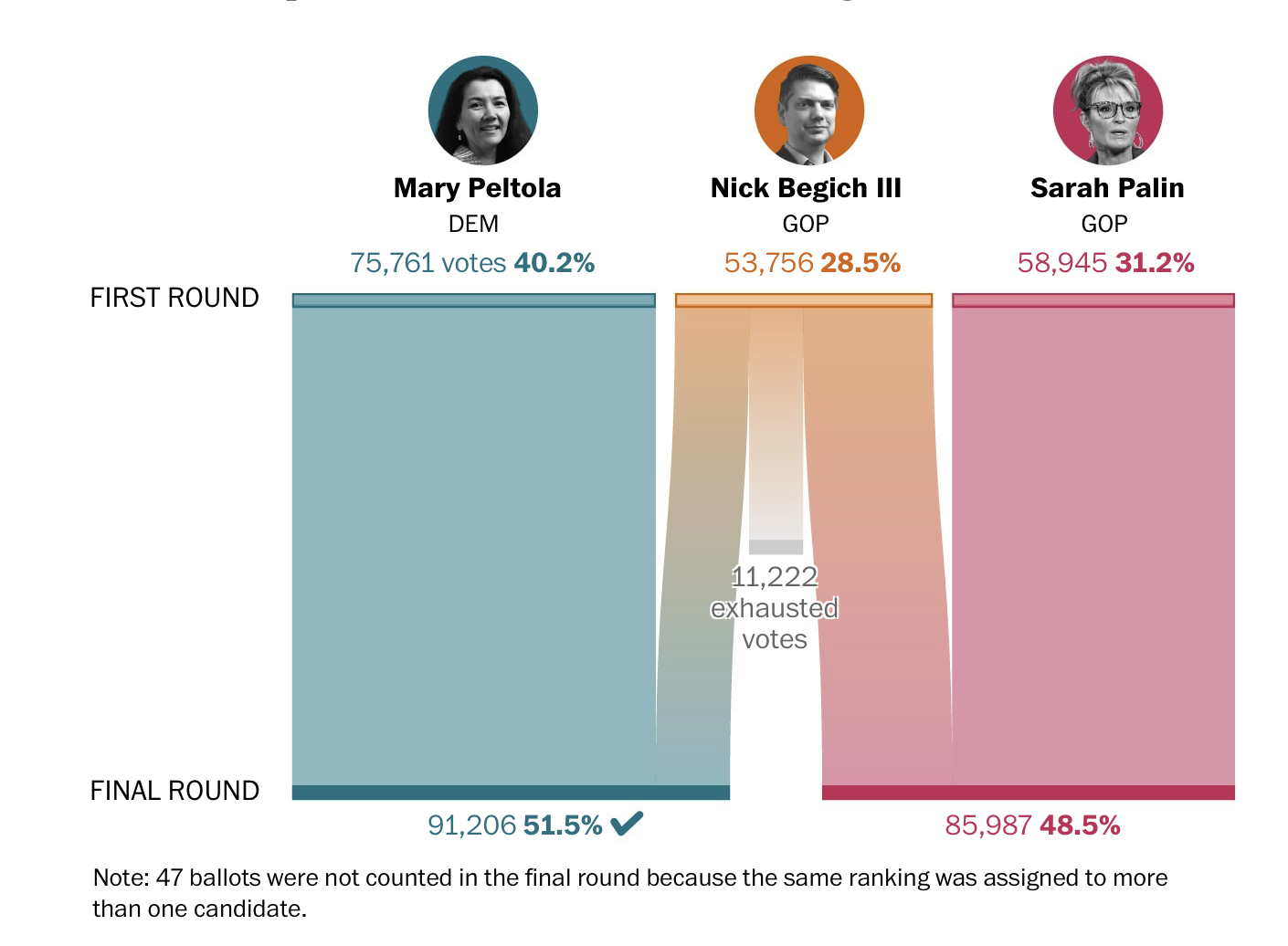Happy Thursday! Netflix is doing its part to close generational divides by ensuring we all have the same horrifying childhood entertainment: The streaming giant has announced a reboot of Teletubbies, that uncanny classic featuring giant colorful humanoids and a sun/baby.
Quick Hits: Today’s Top Stories
Ukrainian forces have made advances in the country’s east near Kharkiv, threatening a Russian supply line, according to Ukrainian and Russian sources and geolocated footage. Russia’s military had in recent weeks moved troops from the east to southern Ukraine to prepare for a long-signaled Ukrainian counteroffensive toward Kherson, possibly creating an opening for these eastern gains. But Ukraine also claimed gains in the south Wednesday including retaking a village and striking Russian military supplies. U.S Secretary of State Antony Blinken made an unannounced visit to Kiev Thursday.
The Pentagon has paused deliveries of F-35 fighters after learning alloys used in a magnet in the plane were produced in China. The military won’t replace the magnets in already-delivered fighters because they’re safe for flight and pose no security risks, F-35 Joint Program Offices spokesman Russell Goemaere said in a statement. But the Defense Contract Management Agency will investigate how the China-sourced alloys ended up in the planes and decide whether Lockheed Martin—which didn’t make the magnets but is responsible for the program—needs a national security waiver to resume deliveries.
The Bureau of Economic Analysis announced Wednesday that the U.S. trade deficit—the gap between the value of U.S. imports and exports—dropped to $70.6 billion in July, down from $80.9 billion in June. Imports fell 2.9 percent, a sign of weakening demand that could contribute to a global economic slowdown.
FBI agents searching former President Donald Trump’s Mar-a-Lago club on August 8 reportedly found classified documents describing a foreign nation’s defenses, including its nuclear capabilities—closely guarded information typically kept in secure facilities. Trump previously called reports that FBI agents were looking for nuclear information a “hoax,” and Trump lawyer Christopher Kise decried this latest news as a leak of “unverifiable and misleading information.” The Justice Department and FBI declined to comment.
Five Texas Department of Public Safety officers have been referred to the state Inspector General’s Office for an investigation of their actions during the Uvalde school shooting, and two who were on-site during the shooting have been suspended with pay. Texas DPS spokesman Travis Considine said the department’s internal review is finished and the department won’t identify the officers being investigated. Texas DPS on Tuesday released a policy change telling officers to “overcome any delay” to neutralize an active school shooter and not to treat a shooter as a “‘barricaded subject.’”
U.S. officials have reportedly told Israeli Prime Minister Yair Lapid that progress toward an Iran nuclear deal has stalled for the foreseeable future. Lapid opposes the deal, which would remove sanctions against Iran in exchange for limiting its ability to build nuclear weapons. Negotiations have previously stalled several times, and the U.S. last week called Iran’s latest response to a proposed agreement “not constructive.”
The Palestinian Ministry of Health said Tuesday that a Palestinian man was killed and 16 others wounded during an Israeli military operation in the West Bank. The Israeli Defense Forces said in a statement the operation was intended to “demolish the residence” of a terrorist who killed three people in Tel Aviv in April, and that during the operation rioters threw rocks and explosive devices at IDF troops, who “responded with riot dispersal means.” The violence took place in Jenin, where the IDF admitted Monday its troops likely killed Palestinian-American journalist Shireen Abu Akleh during a May raid.
Hong Kong Journalists Association Chairman Ronson Chan was arrested Wednesday while reporting a story. China has been limiting free speech in Hong Kong, closing the city’s largest pro-democracy newspaper last year. The Hong Kong police said Chan was arrested on suspicion of obstructing a police officer and public disorder after refusing to show his identity card.
Alaskans Reject Sarah Palin—For Now

When Mary Peltola is sworn in as a member of the U.S. House on Tuesday, it’ll mark the first time Alaska has been represented in the chamber by a Democrat since Al Green, Jim Croce, Marvin Gaye, and Donny Osmond were topping the Billboard charts nearly 50 years ago. Coincidentally—or perhaps not, according to one of her opponents—the election was also the first to be conducted under Alaska’s new voting system.
“Ranked-choice voting is still new to a lot of people,” Peltola said, hours after being declared the winner in the special election to serve out the remainder of the late-Rep. Don Young’s term. “Change is hard, and it doesn’t come easy. But I think that, in this regard, change is certainly good and worth the growing pains.”
The change in question dates back to November 2020, when, after a blitz led primarily by allies of moderate Republican Sen. Lisa Murkowski, the Alaskan public voted 50.5 percent to 49.5 percent to approve Ballot Measure No. 2, an initiative that would dramatically overhaul how the state’s politicians were elected. Starting with the 2022 cycle—when Murkowski was up for reelection, for those keeping track at home—the state would eliminate partisan primaries and replace them with one combined (“jungle”) primary that would advance the top four vote-getters to the general election, regardless of party affiliation. That general election would then employ ranked-choice voting (RCV), which allows voters to order the candidates on their ballot by preference, rather than just picking their one favorite. If no candidate received more than 50 percent of the first-choice votes, the candidate with the fewest first-choice votes would be eliminated and their supporters’ votes would be transferred to whichever candidate was ranked second on their ballot. The process would then repeat until a candidate ended up with majority support.
The goal, according to RCV proponents, is to produce legislators with appeal to a broader swath of voters and prevent fringier candidates with intense but limited support from maximizing their base turnout and squeaking through crowded fields. And like the rules to a complicated board game, the methodology might make more sense once you see it in action.
When Rep. Young died in March after nearly half a century in the House, a special election was triggered to determine who would fill Alaska’s vacant at-large seat until January. A whopping 48 candidates jumped in the race—including a man legally named Santa Claus—but the field was winnowed down to the top four in the June 11 primary: Sarah Palin, Nick Begich III, Al Gross, and Mary Peltola, in that order.
Palin, of course, was Alaska’s governor from 2006 to 2009 and the Republican vice presidential nominee in 2008. Begich is the descendant of Democratic political royalty in Alaska—his grandfather preceded Young in the House, and his uncle Mark was one of the state’s U.S. senators from 2009 to 2015—but was running as a moderate Republican. Gross was the Democratic nominee to challenge Sen. Dan Sullivan in 2020, but entered this race as an independent. Peltola spent a decade as a Democratic state legislator from 1999 to 2009 and later served as the executive director of the Kuskokwim River Inter-Tribal Fish Commission.
Gross dropped out of the race in late June with minimal explanation—and a judge ruled the fifth-place finisher in the primary could not replace him—so what was supposed to be a top-four general election on August 16 featured only three candidates. Peltola, therefore, was able to consolidate Democratic support in the first round of balloting while Palin and Begich split the Republican vote.
Peltola was the top-ranked candidate by about 40 percent of Alaskan voters, while Palin secured 31 percent of the first-choice support and Begich 29 percent. When the final results were announced more than two weeks later—the RCV tabulation didn’t take place until all eligible late-arriving absentee ballots were received—Peltola had defeated Palin 51.5 percent to 48.5 percent. This graphic from the Washington Post helps illustrate how it happened:

Once Begich was eliminated from contention, the support of his nearly 54,000 voters was transferred to whichever candidate they had ranked second on their ballot. For about 27,100 of them, that was Palin. For about 15,500 of them, it was Peltola. And for about 11,200 of them—either because they couldn’t stomach any other candidate or they didn’t know they had to fill in more than one bubble—it was no one. Peltola won by about 5,200 votes.
Palin was not pleased, arguing the RCV system was “crazy, convoluted, [and] confusing,” and that it “effectively disenfranchised” the 60 percent of voters who did not rank Peltola first on their ballots. GOP Sen. Tom Cotton of Arkansas labeled RCV a “scam to rig elections,” and a spokeswoman for the Republican National Committee claimed “every single voter” who supported one of the two GOP candidates “lost their voice to choose their representative in Congress.”
It’s easy for Republicans to pin Palin’s loss on RCV, but it’s not at all clear she would have prevailed in a more traditional, first-past-the-post system. The end of her gubernatorial tenure left a sour taste in many Alaskans’ mouths—she abruptly resigned in July 2009 only to re-emerge months later with a book deal and TV contracts—and she entered the race this spring with a net favorability rating of -23 percent, compared to Begich’s +1 percent and Peltola’s +12 percent. She skipped a number of Alaska-based events and candidate forums throughout the campaign—opting instead to attend out-of-state fundraisers and national Republican gatherings like CPAC—and when the Anchorage Daily News reached out to her for a story in early August outlining the three candidates’ policy priorities, the paper did not receive a response.
Palin and Begich also failed to adapt their strategy to fit the RCV system. They attacked each other relentlessly throughout the campaign—Begich called Palin a self-aggrandizing and uninformed “quitter,” Palin labeled Begich a RINO (Republican in Name Only)—and Palin neglected to encourage her supporters to list Begich second on their ballots, despite Begich doing her that favor. Had 5,300 more Begich voters followed his advice, Palin would be on her way to Washington.
She might still end up there, as the same three candidates—plus Chris Bye, a libertarian who describes himself as “just a regular Fairbanks guy”—advanced to November’s general election. The Cook Political Report shifted its rating of the race from “Likely Republican” to “Toss Up” after Peltola’s special election victory, and the Democrat said she’s “optimistic” she can hold on to the seat for a full two-year term. Palin, meanwhile, has focused her ire on Begich, calling on the “three-time loser” to “do the honorable thing” and withdraw from the race so Palin can have the GOP lane all to herself.
He’s not going to. “Ranked-choice voting showed that a vote for Sarah Palin is in reality a vote for Mary Peltola,” Begich said last week. “Palin simply doesn’t have enough support from Alaskans to win an election.”
Ranked-Choice Voting Gains Steam
Alaska is not alone in experimenting with novel ways to conduct elections. Five states have adopted nonpartisan primaries: Louisiana, California, Nebraska, and Washington use a top-two system rather than top-four—and Nebraska’s primaries are nonpartisan only in state legislature races—and Maine in 2018 became the first state to implement a ranked-choice voting system on a statewide level. Both reforms are on the ballot in Nevada this November, and polling indicates they will be adopted. There, Democratic leaders are the ones most vocal in their opposition: The state has stronger conservative third parties than progressive ones, so the changes could move the center of gravity ever so slightly in the GOP’s direction.
But Nick Troiano—executive director of Unite America, a nonpartisan political organization advocating for electoral reform—hopes voters look past short-term partisan arguments about reform, even if elected officials can’t. “For politicians who rely on only being able to attract plurality support of a narrow faction to be elected, they don’t necessarily want to be held accountable by a larger group of voters,” he told The Dispatch. “However, I think many politicians would be wise to recognize just how unhappy voters are with the current system, and how many voters across the spectrum support these reforms.”
After listening to arguments both in favor and against RCV, more than six in 10 respondents to a University of Maryland study published earlier this year were in favor of adopting the system for federal elections, including 73 percent of Democrats and 49 percent of Republicans. And polling routinely suggests Americans of all political stripes are clamoring for alternatives to the current two-party system.
That’s not to say there aren’t compelling arguments against nonpartisan primaries and RCV. Some have argued the need to appeal to a wider swath of voters would promote centrism just for centrism’s sake, resulting in bland candidates unwilling to stake out bold policy stances. In today’s conspiratorial and paranoid political environment, any delay in reporting official results will almost assuredly fuel claims of foul play—particularly if a third- or fourth-place candidate jumps into the lead after final preferences are tabulated. And perhaps most importantly, it’s objectively more complicated than the existing system. Plenty of voters will forget to mark down their second-, third-, or fourth-ranked options, and plenty will not know enough about the larger pool of candidates to make an informed decision.
But Australia has been using RCV for more than a century with little to no fuss, and a poll from the (granted, pro-RCV) Alaskans for Better Elections found 95 percent of Alaskans reported receiving instructions on how to rank candidates, and 85 percent of them said RCV was “simple!”
And if it works as it theoretically should, the days of a tiny number of riled-up primary voters dictating the tone of politics for the rest of the country would be over. According to data from Unite America, closed, partisan primaries—coupled with non-competitive districts—have resulted in just 8 percent of eligible voters deciding more than 80 percent of Congress.
“More participation and more competition can result in better representation and better elected officials who are now accountable to the majority of their constituents, not just the 10 percent who vote in primaries,” Troiano said. “That’s not going to be clear within one election cycle in Alaska. But I think if you look at states that have deployed these systems in the past, they are less polarized than others, and they tend to have better governing outcomes.”
Worth Your Time
Nick started online gambling as a young teen under a fake account made in his father’s name and ended up gambling all night and failing college classes. Jason’s occasional casino visits turned into losing “a couple hundred thousand dollars” after he started gambling on his phone. One Chicago man’s effort to bring in extra income after being laid off spiraled into playing poker online at work and hiding the growing debts from his wife. “The omnipresence of gambling and gambling-like activities has made financial catastrophe a few clicks away for anyone with a phone,” Maxwell Strachan reports for Vice. “Experts increasingly see the simultaneous rise of online sports betting, online casinos (legal or not), cryptocurrency trading, and day trading as the same root thing—gambling—with the same root issues. … ‘They have access to it 24/7 in the palm of their hands,” [Gamblers Anonymous member and staffer] Cindi said. ‘The temptation is always here. You can stay away from casinos and racetracks but you can’t stop using your phone.’”
Meet the Belarusian IT workers, factory workers, ex-policemen, and occasional criminal—many self-exiled after previous anti-authoritarian protests in the country failed—who are volunteering to fight Russia’s invasion of Ukraine, hoping to help Ukraine stay free and topple their own authoritarian leader. “During a series of mass protests following a stolen election in 2020, a moment all of them call ‘the revolution,’ K and a friend distributed leaflets with slogans criticizing the regime,” Anne Applebaum reports for The Atlantic. “The friend is now in prison, serving a four-year sentence (K tells me his name; later I find it on a list of political prisoners). After Russia invaded Ukraine, K was racked with guilt, unable to sleep, angry that the failure of the Belarusian revolution meant that Russian rockets could be launched at Ukraine from Belarus. ‘I understood that we have an obligation to go to Kyiv,’ he says. ‘And afterwards, we will go to Minsk.’”
Presented Without Comment
Also Presented Without Comment
Also Also Presented Without Comment
Toeing the Company Line
The Cato Institute’s Marian Tupy joined Jonah on Wednesday’s Remnant to discuss the popular—yet in Tupy’s view mistaken—idea that overpopulation will deplete the world, the problem of collapsing fertility rates, and how nations become prosperous. Plus: why apocalyptic predictions are so appealing.
Once you’re done with Wednesday’s episode, queue up today’s edition, which features crime expert and Manhattan Institute fellow Rafael Mangual joining Jonah to discuss the sociology of criminology, deterrence, and what’s up with the United States’ high incarceration rate.
Law professor and Fourth Amendment scholar Orin Kerr joins Sarah on today’s episode of Advisory Opinions to discuss that strange ruling on Trump’s request for a special master in the Mar-a-Lago case. Plus: Former Utah Supreme Court Justice Thomas Lee drops by to discuss corpus linguistics.
Is it a pundit’s job to tell his or her audience which political candidates to support? “My objection to the ‘who should you vote for?’ debate isn’t that it’s illegitimate or even necessarily inappropriate,” Jonah writes in Wednesday’s G-File (🔒). “It’s that it is reflective of a larger approach that I think is contaminating much of the right. Concentrating on voting, elections, and party politics can reduce, distort, or subsume the role of conservative intellectuals (for want of a less pompous term) to a partisan calculus.”
On the site today, Andrew Fink examines Vladimir Putin’s call for more troops in Ukraine.
Let Us Know
Where are you at on ranked-choice voting? Do the supposed benefits outweigh the costs?







Please note that we at The Dispatch hold ourselves, our work, and our commenters to a higher standard than other places on the internet. We welcome comments that foster genuine debate or discussion—including comments critical of us or our work—but responses that include ad hominem attacks on fellow Dispatch members or are intended to stoke fear and anger may be moderated.
With your membership, you only have the ability to comment on The Morning Dispatch articles. Consider upgrading to join the conversation everywhere.